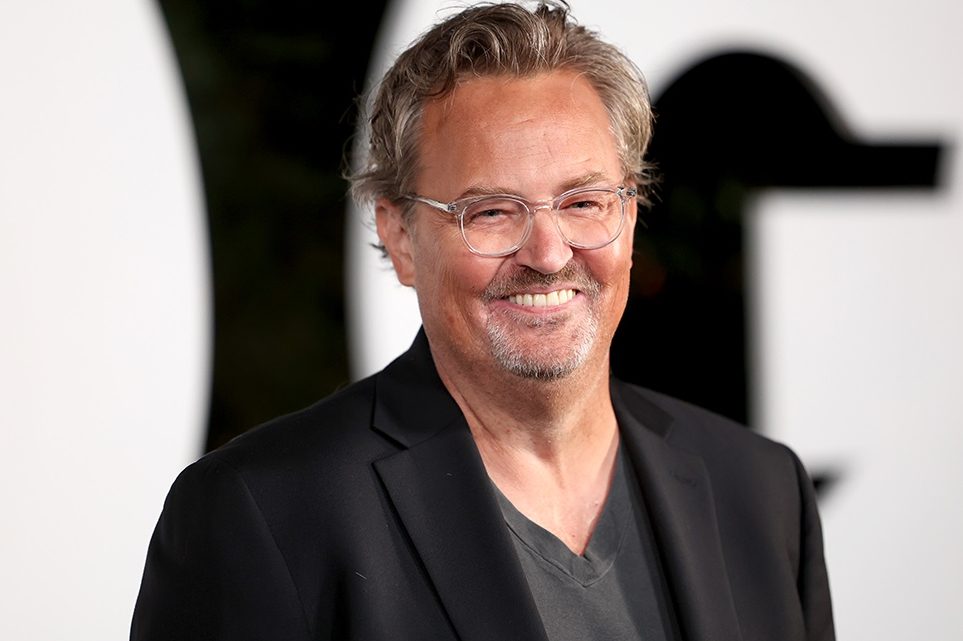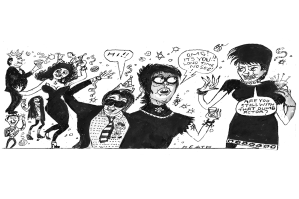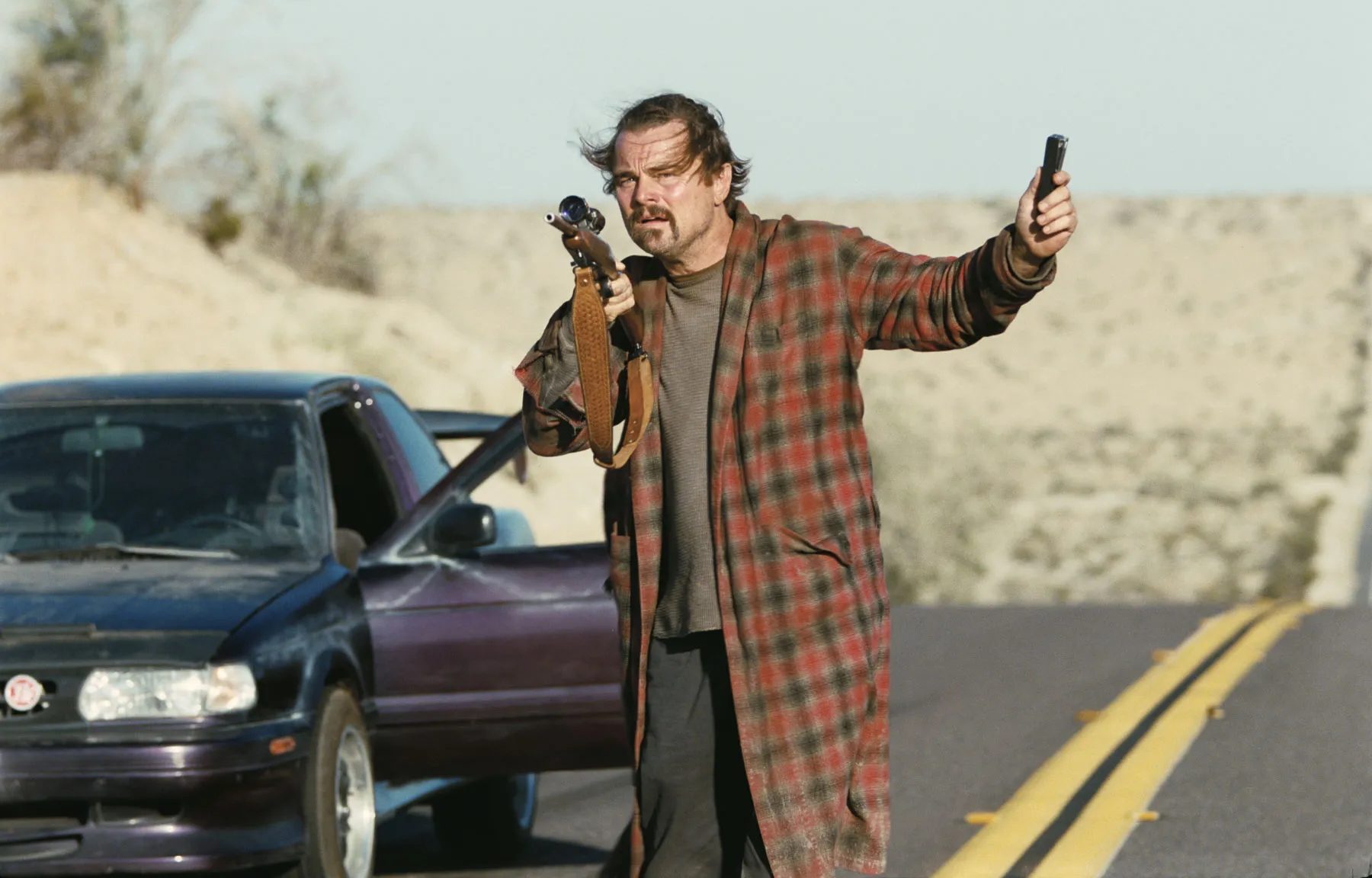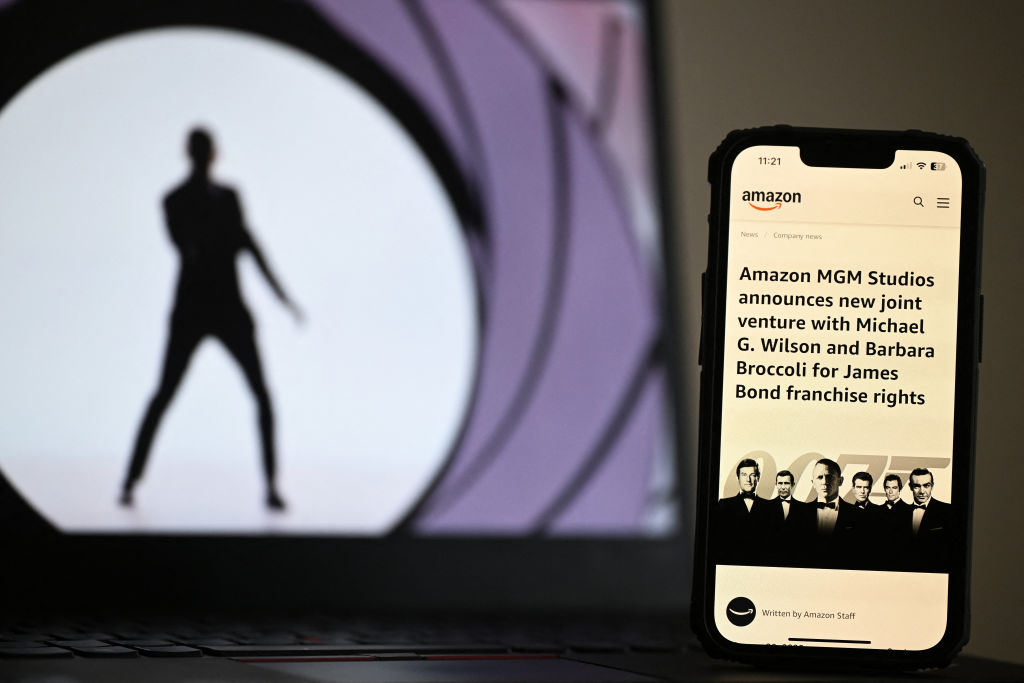A new stop has been added to the map of Movie Star Homes and Crime Scenes, on sale at LAX airport: 18038 Blue Sail Drive, Pacific Palisades, the sleek single-story $6 million ocean-view house where the Friends actor Matthew Perry was found floating in his hot tub last October. His death has revealed something of the dark world of LA’s celebrity staff.
Perry’s assistant, two doctors and LA’s ‘Ketamine Queen’ have been charged with supplying the drugs
Last week it was reported that Perry’s live-in assistant Kenneth Iwamasa injected his boss with ketamine before his death. While watching a movie around noon, the actor asked Iwamasa — part-butler, part-nurse and head of shopping (including meds and drugs) — for his third jab of the day. He reportedly told Iwamasa: “Shoot me up with a big one.” Perry was always a master of the sarcastic one-liner.
Five people, including Iwamasa, two doctors and LA’s “Ketamine Queen” drug dealer, have been charged with providing the drugs that killed him. Perry paid the two doctors around $55,000 in cash in the two months before his death.
Questionable doctors and assistants have long been part of LA staff culture. Michael Jackson died in 2009 from acute propofol intoxication after digesting a cocktail of anti-anxiety drugs prescribed by his personal doctor Conrad Murray (who was sentenced to four years in prison). Marilyn Monroe died from barbiturates, despite her doctor instructing the housekeeper to watch her. John Belushi, who died in 1982, was injected with a speedball (cocaine and heroin) by a groupie at a party at the Chateau Marmont. Perry’s assistant knew the risks: five years before his death, Perry’s colon exploded from drug use. He was in a coma for two weeks but survived, alas none the wiser.
Dislocated from the rest of the USA by desert, mountains and freeways, LA has no center. It can often be the loneliest and least romantic city in the world. That isolation seems to infect some residents. When I lived in LA in the 1990s, the most high-profile industry crash-and-burn drug death was that of the producer Don Simpson, the son of strict Baptists and creator of Top Gun, Flashdance and Beverly Hills Cop. He was notorious for his cocaine-fueled sex parties and for being fired from Paramount in 1982 when he passed out during a studio meeting. Simpson was found on the bathroom floor of his Bel-Air house — which he called “the Embassy” — aged fifty-two. LA police discovered 2,200 prescription pills stacked in alphabetical order in his bedroom closet. His personal doctor — who lived in his pool house — had died the previous year from an overdose of cocaine, Valium, venlafaxine and morphine. Nice doctor to have.
I didn’t know Simpson but I knew his architect Don Umemoto. He once told me that the reason Simpson had bought the house was that it was adjacent to the Hotel Bel-Air, “so that he could order room service twenty-four hours a day.” Many of LA’s concierge class are afflicted by a room-service mentality.
Surrounded by a small army of paid assistants, people soon lose any sense of privacy or the old upstairs-downstairs distinction. Many of the wealthy Hollywood residents I met preferred to eat with their assistants, from personal trainers to nannies. A dinner of Chinese chicken salad would be made by a personal chef, accompanied with a side dish of on-demand friendship.
Simpson, like many Hollywood types, couldn’t function without several assistants on hand twenty-four hours a day. Back in 1988, one former assistant, Monica Harmon, went so far as filing an “emotional stress” suit for $2.5 million against Paramount and Simpson. She claimed that he ordered her to clean up traces of cocaine and insulted her with a barrage of names, of which “garbage brain” was the most innocuous. Harmon’s duties also included “the task of keeping and maintaining a list of prostitutes,” from which she was expected to book his diary appointments. The case was settled out of court.
LA assistants are not Jeeves-like butlers, personal valets or paid lady companions in the Edwardian or Victorian sense. Nor are they like the young Northwestern University graduate PA in The Devil Wears Prada, whose life becomes unbearable thanks to the demands of an editor who insists that the job is more important than boyfriends or family.
The truth is that being an assistant in LA can bring great rewards. Many end up wielding enormous influence over their employers and revel in the power it brings. The salary of a high-end personal assistant can reach $250,000 a year, excluding bonuses. Often the relationship is co-dependent and volatile.
The Hollywood assistant is an even stranger animal when you consider that many of their employers don’t really work in any conventional sense. Even before the pandemic, LA was the capital of work-from-home. In celebrity bubbles like Perry’s, or the $12 million Montecito mansion of Meghan Markle and Prince Harry, there is no corporate governance, no HR and no rules other than the demands of the employer. Last week it was reported that the Sussexes’ latest chief of staff (whatever that entails) has quit after only three months, bringing the roll call of resignations to eighteen.
California can be dangerously dysfunctional. The lousy, medicated LA parents of the 1980s and 1990s were the ones who first had their children prescribed with drugs like Ritalin and Prozac. In the UK, antidepressant prescriptions for children have risen by 44 percent over the past decade, and now stand at half a million a year. This trend of pushing medication all began with US doctors who realized how much they could profit from the anxieties of the rich and famous.
One of Perry’s doctors, Dr. Salvador Plasencia, sent a text message to a friend in San Diego who supplied the ketamine, saying: “I wonder how much this moron will pay?” The sad truth is that for an addict like Perry, having his own high-end drug dealer, along with his chef, personal trainer and pool cleaner, was just part of his ultimately fatal fame — service with a smile and a syringe.
This article was originally published in The Spectator’s UK magazine. Subscribe to the World edition here.
























